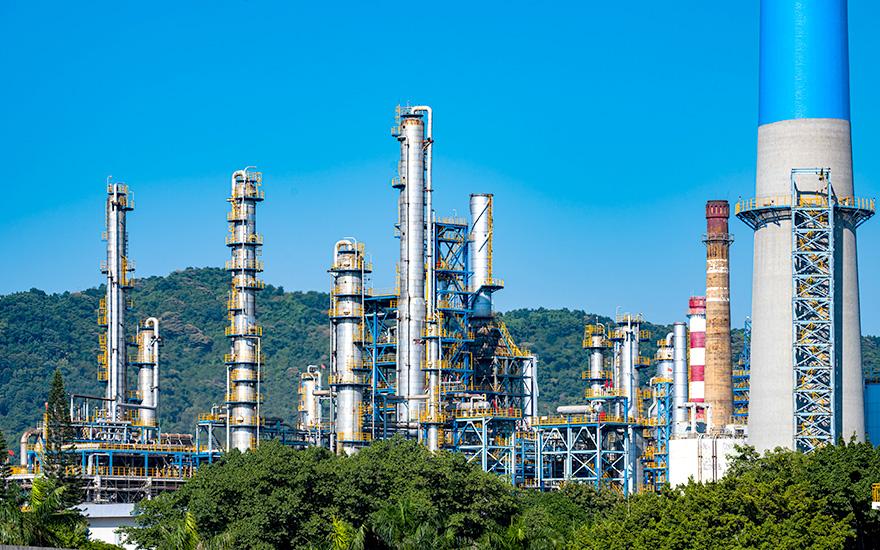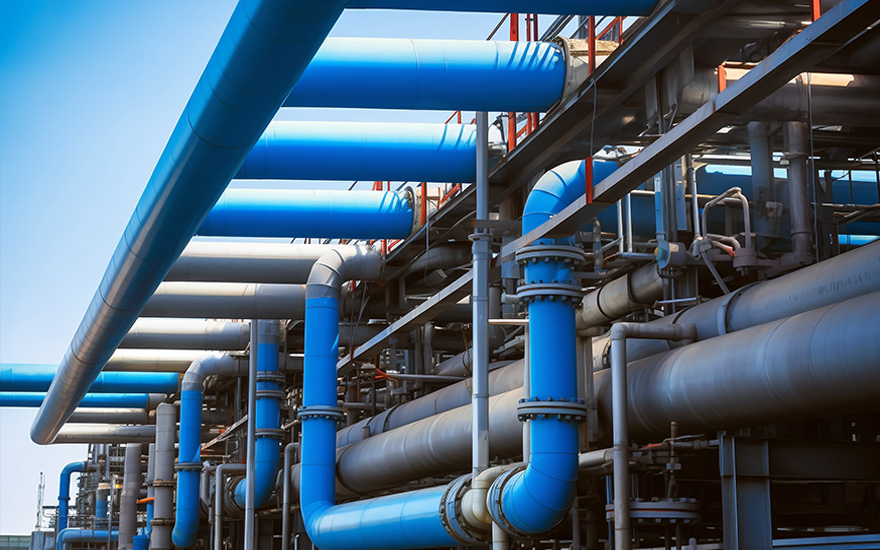

Application area
Petrochemical Insulation
With continuously rising national energy efficiency standards, thermal insulation is playing a critical role in energy conservation and emissions reduction. Recognized as the "fifth form of energy," it is driving petrochemical enterprises to continually enhance their insulation technology and reduce energy consumption.
-

Challenges
> Traditional materials exhibit rapid performance degradation. Due to their low structural strength, pipeline sagging is prevalent, resulting in substantial heat loss through joint gaps.
> Inadequate insulation performance leads to significant heat dissipation, causing a considerable drop in temperature and pressure at the pipeline terminus. This increases boiler load and elevates operational costs.
> The limited waterproofing properties of traditional materials accelerate pipeline corrosion, creating substantial safety hazards. -

Benefits of aerogel insulation materials
> Sharply reduces the thickness required for insulation so as to minimize heat loss and improve insulation effect.
> Enhanced structural strength and compressive strength ensure stable performance and prolong service life.
> Waterproof property minimizes corrosion on pipelines.
> Can be cut on site according to different sizes and shapes and easily installed in confined space, reducing time for installation and required labor.
> With minimum thickness to achieve same insulation effect as conventional materials, reducing the use amount and the cost for outer protective cladding as well as the space and cost for transportation and storage.
> A mixed solution together with conventional materials offers the benefits of both cost saving and energy conservation.






